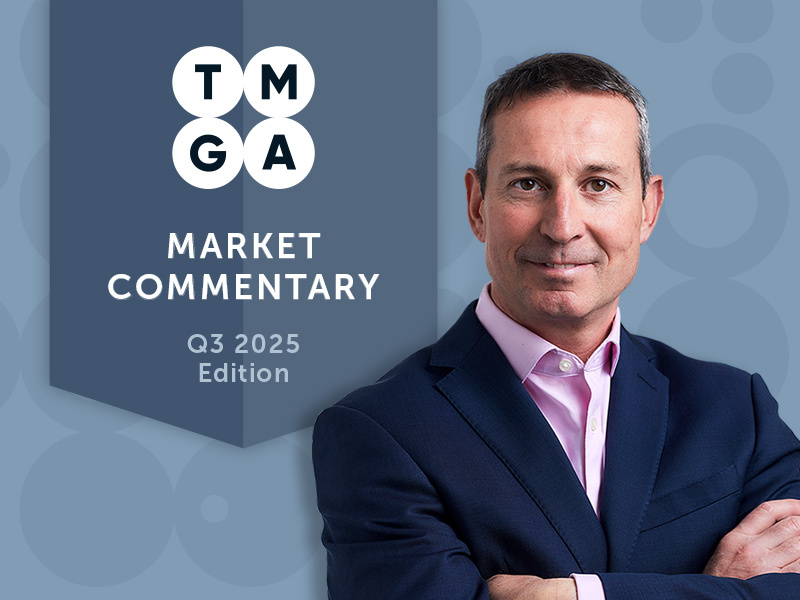


Turbulent Times
“Turmoil in the markets is certainly not a new phenomenon, though it may seem like that, given what we experienced in the years leading up to the pandemic in 2020, with moderate economic growth, low inflation and low interest rates,” says Tim. “However, when we look back, we can chart a constant course of market turbulence – from the Mexican crisis in 1994/1995, the dot-com boom and bust of 1999/2000, the war in Iraq in 2003, to the global financial crisis of 2007/2008. If there’s one thing we can be sure of, we’ve seen these levels of elevated market instability before and we will, without doubt, see them again.” He adds: “When trying to make sense of the current macro events and understanding the impact from an investment perspective, it’s useful to look at it through the lens of the VUCA principle.” VUCA describes a situation, event or environment that is Volatile, Uncertain, Complex, and Ambiguous – four distinct challenges simultaneously present, the effect of which can seem overwhelming, and often the cause of disruption and confusion.
If there’s one thing we can be sure of, we’ve seen these levels of elevated market instability before and we will, without doubt, see them again.
Implication for Financial Markets
“There is certainly correlation between today’s VUCA environment and what we are seeing in the recent dislocation of financial markets,” adds Greg Powell, Senior Investment Director at TMGA. “There is volatility; the values of certain investments are fluctuating in response to macro-economic influences. Prior to Trump capitulating on April 9th with a 90-day reprieve on his initial tariff position, the S&P had fallen 19% from the February high, as investors reduced excessive exposure to overvalued US growth stocks but has subsequently staged an impressive recovery. Nonetheless there is still uncertainty – in terms of what’s going to happen next and how tariff policy will impact the free flow of global trade, which until now has underpinned the continuing rise of global GDP. We are seeing complexity, with recent de-globalisation trends and rapid technological advances having positive and negative impacts and arguably creating an environment for trade barriers and protectionism. We are also witnessing ambiguity – conflicting views, analysis paralysis and emotional investing, which can lead to panic buying and selling by some market participants.”
So how does TMGA respond to all this?
“The simple answer is, we embrace market volatility and look for suitable opportunities, as sectors reprice relative to one another,” says Tim. Each Senior Investment Director at TMGA has extensive experience in the investment management industry and having lived through many major financial crises, accept volatility, uncertainty, complexity, and ambiguity in the markets as the norm. “Instead of trying to manage elements outside our control, we calmly harness our collective knowledge and experience” he adds. “We have confidence in our philosophy – it’s based on patience with a disciplined investment approach. Our objective is clear: seeking to deliver positive, risk-adjusted returns that meet our clients’ long-term financial objectives. Therefore, we don’t subscribe to short-term trends and market noise – it’s all about the long term and investing for the future. We are experienced long-term investment managers, analysing and evaluating the investment landscape to identify emerging trends, new business cycles and global themes – this shapes our strategic, top-down view.
... we don’t subscribe to short-term trends and market noise – it’s all about the long term and investing for the future.
We also use rigorous bottom-up research disciplines to inform and validate these views, implementing them across our core investment strategies and ensuring there is sufficient diversification and ballast, from both an asset allocation and portfolio construction perspective.” Tim adds: “The result for our clients? Exposure to different regions, themes, and sectors, creating reduced concentration risk. We build an investment portfolio like we’d build a house – with strong foundations, a good roof and sturdy walls, so it’s in a robust position to weather storms. Our clients understand and value our approach, as it provides reassurance in uncertain times. We develop long-term personal relationships built on trust, transparency, and confidence. Respectful of this trust, we continue to use our collective skills and combined knowledge and experience, blending it to achieve the best outcomes for our clients in different market situations.”




